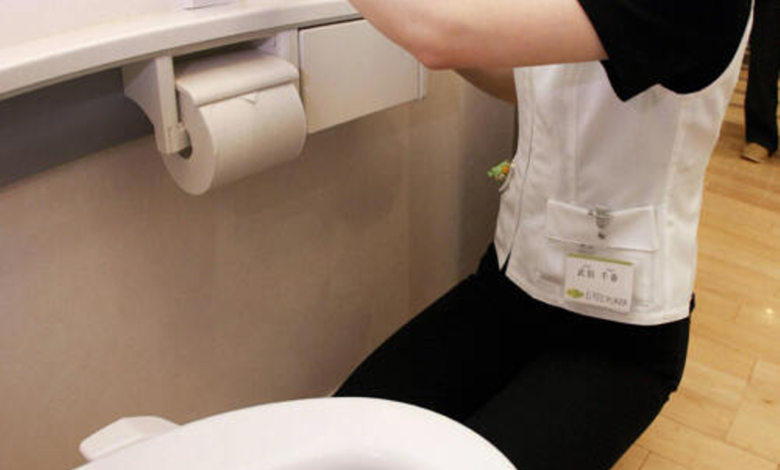The Rise of Smart Toilets: How They Can Detect Health Issues Early
Smart Toilets health monitoring is revolution disease detection. Discover how AI-powered toilets analyze urine and stool to prevent health issue.

The rise of smart toilets is revolutionizing personal healthcare by offering early detection of health issues through advanced technology. These innovative bathroom fixtures are equipped with sensors, artificial intelligence, and data analytics to monitor various biomarkers in urine and stool, providing real-time health insights. By analyzing key indicators such as glucose levels, hydration, infections, and even early signs of chronic diseases, smart toilets can alert users to potential health concerns before symptoms become severe. This proactive approach to wellness bridges the gap between routine bathroom visits and medical check-ups, making preventive healthcare more accessible and convenient.
As technology continues to evolve, smart toilets are becoming an essential tool in modern medicine, offering a non-invasive and seamless way to track health. From detecting urinary tract infections to monitoring kidney function and diabetes, these devices empower individuals to take control of their well-being. The integration of smart toilets into smart homes and healthcare systems marks a significant step forward in early disease detection, ultimately improving outcomes and reducing healthcare costs.
The Rise of Smart Toilets
The Evolution of Smart Toilets
The concept of a smart toilet may seem futuristic, but advancements in medical technology and the Internet of Things (IoT) have made it a reality. Traditional toilets serve a basic function, but smart toilets go beyond waste disposal—they analyze data to provide actionable health insights. Early versions of smart toilets were limited to features like automatic flushing, seat warming, and bidet functions. However, the latest models incorporate biosensors, machine learning algorithms, and cloud-based data storage to track and interpret health metrics.
How Smart Toilets Detect Health Issues
Smart toilets utilize a combination of optical sensors, chemical strips, and AI-driven analytics to assess bodily waste. When a user urinates or defecates, the toilet’s sensors scan the sample and compare it against established health benchmarks. For example:
Urine Analysis
Smart toilets perform urine analysis using advanced biosensors to detect key health markers. These sensors measure glucose levels (indicating diabetes), protein content (signaling kidney issues), nitrites (suggesting UTIs), and blood (a possible sign of infections or bladder conditions). By analyzing pH balance and specific gravity, the toilet can also assess hydration levels and metabolic function. The data is processed in real-time using AI algorithms, comparing results against normal ranges to identify abnormalities.
Stool Analysis
Smart toilets equipped with stool analysis capabilities use advanced sensors and AI to examine fecal matter for early signs of digestive and systemic health issues. These systems assess stool color, consistency, and composition, detecting abnormalities such as blood (which may indicate hemorrhoids, infections, or colorectal cancer), excess fat (suggesting malabsorption disorders), and unusual pH levels (linked to gut microbiome imbalances). Some high-end models even analyze bacterial content or inflammatory markers, providing insights into conditions like irritable bowel syndrome (IBS), Crohn’s disease, or food intolerances.
Regular Monitoring
One of the most powerful features of smart toilets is their ability to provide regular monitoring of key health indicators through daily, non-invasive analysis. Unlike traditional medical tests that offer a single snapshot of health, these advanced systems track trends in urine and stool composition over time, establishing personalized baselines for each user. By continuously collecting data on biomarkers like glucose, protein, hydration levels, and gut health indicators, the toilet’s AI algorithms can detect subtle deviations that might signal the early stages of chronic conditions such as diabetes, kidney dysfunction, or gastrointestinal disorders.
The integration of AI allows the system to learn individual baselines, reducing false alarms while improving accuracy. If an anomaly is detected, the toilet can notify the user via a connected app, recommending further medical evaluation if necessary.
Benefits of Smart Toilets in Preventive Healthcare
One of the most significant advantages of smart toilets is their ability to facilitate early disease detection. Many chronic illnesses, such as diabetes and hypertension, develop silently before symptoms emerge. Routine check-ups may not catch these conditions in time, but continuous monitoring through a smart toilet can.
Electronic Health Records
Another key benefit is data integration with electronic health records (EHRs). Doctors can access long-term trends, allowing for more informed diagnoses and personalized treatment plans. This seamless connection between home health monitoring and professional medical care enhances overall healthcare efficiency.
Invasive Procedures
Additionally, smart toilets reduce the need for frequent lab tests, making healthcare more convenient. Patients with chronic conditions can track their health without daily invasive procedures. For elderly individuals or those with mobility issues, these toilets provide an effortless way to stay on top of their health.
Privacy and Security Concerns
Despite their advantages, smart toilets raise valid concerns about data privacy. Since these devices collect sensitive health information, manufacturers must ensure robust encryption and secure cloud storage. Users should have full control over who accesses their data, whether it’s their physician, family members, or insurance providers.
Regulatory Bodies
Regulatory bodies are beginning to establish guidelines for health-monitoring IoT devices, ensuring compliance with medical data protection laws like HIPAA (in the U.S.) and GDPR (in Europe). Transparency in data usage and strong cybersecurity measures will be crucial in gaining consumer trust.
The Future of Smart Toilets in Healthcare
As AI and sensor technology continue to advance, smart toilets will become even more sophisticated. Future models may incorporate DNA analysis to detect genetic predispositions to certain diseases or microbiome assessments to gauge gut health. Integration with telehealth platforms could enable instant consultations based on toilet-generated reports.
Public Health
Moreover, smart toilets could play a vital role in public health by aggregating anonymized data to track disease outbreaks, such as urinary infections or gastrointestinal viruses. Hospitals and nursing homes may adopt these toilets to monitor patients more efficiently.
Prevention
The rise of smart toilets represents a paradigm shift in preventive medicine, transforming an everyday household fixture into a powerful health-monitoring tool. As adoption grows, these devices could become as commonplace as smartwatches and fitness trackers, further embedding healthcare into our daily lives.
Read More: Plant-Based vs. Animal-Based Diets: Which One is Healthier?
Conclusion
The rise of smart toilets marks a groundbreaking advancement in early health issue detection, merging convenience with cutting-edge medical technology. By continuously analyzing biomarkers in urine and stool, these devices provide real-time insights that can prevent serious health complications. As they become more accessible, smart toilets will empower individuals to take a proactive approach to their well-being, reducing the burden on healthcare systems and improving long-term health outcomes.
While challenges such as data privacy and cost remain, the potential benefits of smart toilets far outweigh the drawbacks. With ongoing advancements in AI and biosensor technology, these innovative fixtures are set to revolutionize personal healthcare, making early disease detection as simple as using the bathroom. The future of preventive medicine is here—and it’s smarter than ever.
FAQs
How do smart toilets detect health issues?
Smart toilets use biosensors and AI to analyze urine and stool for biomarkers, detecting abnormalities like high glucose, infections, or blood presence.
Are smart toilets secure and private?
Reputable brands use encryption and comply with medical privacy laws, but users should review data-sharing policies before use.
Can smart toilets replace doctor visits?
No, they provide early warnings but should complement professional medical advice, not replace it.
How much do smart toilets cost?
Prices range from a few hundred to several thousand dollars, depending on features and health-monitoring capabilities.
Will smart toilets become mainstream?
As technology improves and costs decrease, toilets are likely to become more common in households and healthcare facilities.











